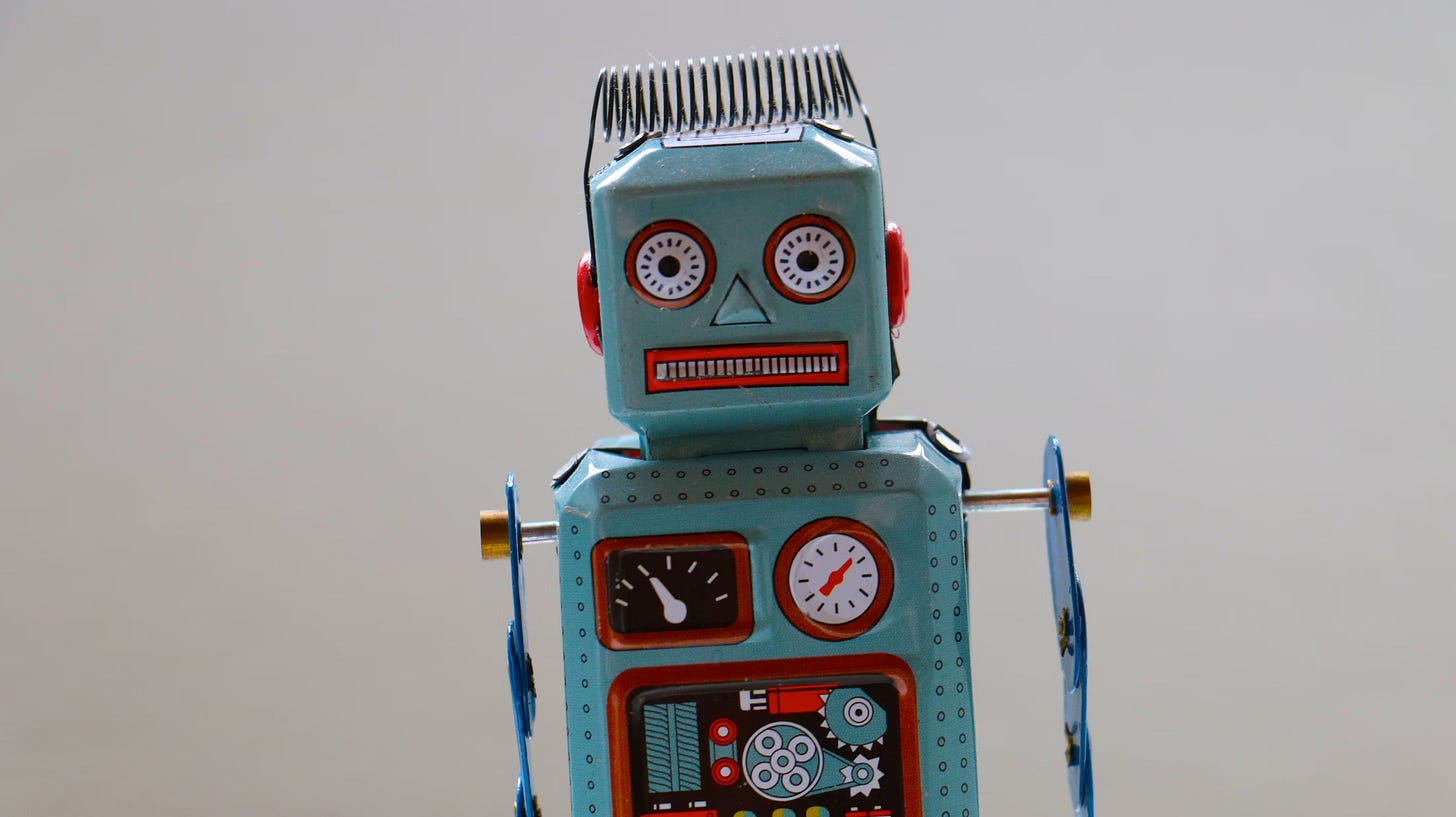The Invisible War: How Your Every Click is a Battle Between Humans and Machines
Are you human? Go on. Prove it.
You know the drill. The little checkbox appears: "I'm not a robot." Click. Loading. Sometimes that's enough. Other times, a grid of blurry images materializes, demanding you identify crosswalks, traffic lights, penguins. You squint at pixels, asking yourself the real life-altering questions that made today worth waking up for: is this motorcycle-looking thing actually a motorcycle? Is that corner pixel part of a traffic light? Does half a bumper count as a car? The chain goes on, you’re now officially a crosswalk expert, and even cooler, you’re human enough to proceed.
This single click is actually you enlisting as a foot soldier in a war you don't know you're fighting.
There's more to that checkbox - also known as CAPTCHA, for Completely Automated Public Turing Test to Tell Computers and Humans Apart. What feels like a minor annoyance is actually the front line of an invisible war. Every website you visit is a battlefield where defenses are constantly under siege, and that CAPTCHA isn't just stopping spam - it's the most visible symptom of a massive conflict between humans and machines for control of digital space.
And the machines are winning.
reCAPTCHAv2, the version that made you an expert in traffic light identification, has been completely defeated by AI with 100% success rate, according to research published this past September. Recognizing the collapse of their primary defense, Google quietly shifted to reCAPTCHAv3, an "invisible" system that tracks your mouse movements and browser history to guess whether you're human. But when that surveillance approach fails to make the call, it falls back to the old image tests—the same ones that AI can now ace effortlessly.
The industry's response has been to make the tests harder for everyone. Companies like Arkose Labs create "FunCaptcha" puzzles so difficult they frustrate humans more than bots—imagine rotating 3D objects multiple times in sequence just to prove you're not a machine. YouTube just launched AI that analyzes your viewing habits to guess your age, then forces adults to submit government IDs when the algorithm inevitably gets it wrong. The defenses are becoming increasingly intrusive, treating every user as a potential R2D2 in disguise, and if AI continues advancing at its current pace, they'll only get worse.
But here's the thing: the very reason these tests are being circumvented is because we taught the machines how to beat them. Every time you clicked on those little images, you were feeding labeled training data to Google's image recognition systems. The same AI that learned to "see" cars and crosswalks from your clicks is now sophisticated enough to ace the very tests you helped it train for.
Those CAPTCHA failures aren't glitches in the system. They're evidence that we've already lost the digital war. According to Imperva's 2025 Bad Bot Report, bots have surpassed humans online for the first time in a decade, accounting for 51% of all web traffic. The internet has been quietly occupied while we scroll through TikTok.
It wouldn't be so bothersome if these were just stats. But things sting when they get personal. If you've used a dating app lately, you've probably encountered the enemy: 60% of users have suspected or discovered they matched with a bot, according to a survey by World.org. Estimates suggest 15 to 30% of dating profiles are fake or bot-generated. If you're having a charming conversation about shared interests in hiking and iced lattes with someone you think is slightly out of your league and you have a feeling this could be an AI-trained bot, you may not just be creating a new wave sci-fi movie inside your head. It is increasingly likely to be an algorithm trained on thousands of successful or less successful pickup lines.
YouTube comments tell a similar story. Research from a fact-checking institute based in Eastern Europe found that while bots constitute less than 1% of accounts, they generate 11.6% of all comments and appear on nearly 40% of videos. Amazon reviews, which guide billions of people in deciding what to buy and what not to buy, are 4% fake according to World Bank research, a seemingly small percentage that translates to $152 billion in global economic impact.
But the real theater of this war isn't in on Tinder or Amazon. It's in the corridors of power.
AI was used in more than 80% of elections in 2024, according to the International Panel on the Information Environment. In Romania, a court did something unprecedented: nullified the first round of presidential elections after discovering a Russian influence operation flooding TikTok with AI-generated content. The operation propelled a little-known far-right candidate to the lead. Team Jorge, an Israeli private intelligence firm, claims to have manipulated over 30 elections worldwide using a network of 30,000 fake social media avatars.
So, the bots are winning.
This isn't actually a war between humans and machines anymore. It's become something more unsettling—if bots can perfectly mimic human behavior, maybe we're discovering that humans are more predictable than we ever wanted to admit. Bots are maybe most scary when they reveal how robotic and algorithmic we humans already were.
Our digital immune system is failing catastrophically. Human ability to identify deepfakes hovers at just 55-60%, barely better than random chance, according to the World Economic Forum. Detection systems experience 45-50% accuracy drops when confronted with real-world deepfakes compared to laboratory conditions. Our defenses were built for yesterday's dumb spam bots, not today's AI that can pass the Turing test we designed to stop it.
That daily CAPTCHA click has become the Maginot Line of the internet. Still there, still used, but fundamentally obsolete against the actual threat.
Just as medieval doctors killed patients trying to cure them, our bot-detection systems are creating the very problem they're supposed to solve. Every CAPTCHA solved, every bot detected, every defense mounted—it all becomes training data for the next generation of attackers. The cure has become the disease.
Soon, maybe, on the internet, no one will know you're a robot. Picture it: a digital world where AI accounts named Karen and John argue about restaurant reviews, fall in love on dating apps, and debate politics with the passion of true believers—while the few remaining humans scroll through, unable to tell who's real.
And when artificial general intelligence finally arrives, when the digital Karens and Johns become smarter than their flesh-and-blood counterparts, maybe we'll start seeing a new kind of checkbox: "I'm not human."



